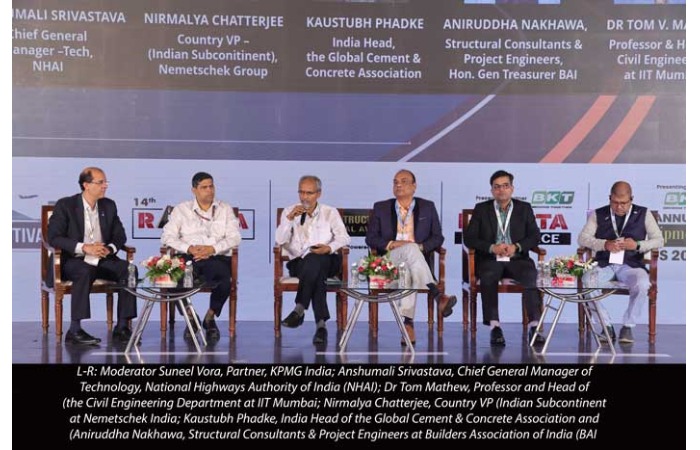
Digital tools will meet India’s infrastructure demands
“Over the past decade, India's road sector has experienced a significant transformation, fuelled by strong government backing and a surge in private sector investment,” according to Anshumali Srivastava, Chief General Manager - Tech, National Highways Authority of India (NHAI). Speaking about the evolution of the sector since 2014, Srivastava highlighted how the shift from solely budgetary support to public-private partnership (PPP) models has been a game changer. Despite increased government spending, Srivastava noted that the sector still has an appetite for further investment, with private players stepping in to fill the gap.
Reason for road accidents are faster roads
“While India's road infrastructure has significantly improved with high-quality construction and advanced geometric designs, there has been an unintended rise in accidents,” said Dr Tom V Mathew, Professor and Head – Civil Engineering, IIT Bombay. Speaking about the advancements in road building, Dr. Mathew emphasised that the new roads offer smoother driving conditions and higher speeds. However, this increase in speed has led to a surge in accidents, not due to construction or design flaws but because drivers are unaccustomed to the improved infrastructure. “The issue lies in driving behaviour and habits, which haven’t adapted to the higher speeds enabled by the new roads,” he said.
Leveraging technology for ambitious targets
“As India’s infrastructure projects grow more ambitious, meeting tight construction deadlines has become increasingly critical,” said Nirmalaya Chatterjee, Country VP (Indian Subcontinent) Nemetschek Group. “We cannot double our workforce or contractors to match these targets. The solution is how effectively we can leverage technology to enhance efficiency and productivity,” he added, highlighting the vital role of digital tools in meeting India’s infrastructure demands.
Cement targets net zero, doubling production
“India’s cement and concrete production is set to double or even triple by 2070,” Kaustubh Phadke, India Head, The Global Cement & Concrete said emphasising the industry's commitment to achieving net-zero emissions by that same year. “As India’s demand for construction materials continues to surge, the Global Cement and Concrete Association (GCCA) is aligning with the country’s ambitious sustainability goals,” said Kaustubh Phadke, India Head of the association. Phadke added, “We are striving to reach net-zero emissions in concrete production by 2050, while also supporting India's broader net-zero target by 2070 and the vision of a ‘Viksit Bharat’ by 2047.”
“As a structural engineer,” Aniruddha Nakhawa, Structural Consultants and Project Engineers, Builders Association of India (BAI), “We are here as builders to introduce all the technologies given by all the members of the dais. One of our builders from Gujarat has set a world record for construction of 100 km road in 100 hours.”
The way ahead
The discussion emphasised how these innovations are driving smarter, more sustainable road development across India, aligning with the country’s broader ambitions for economic growth and infrastructure modernisation.


 +91-22-24193000
+91-22-24193000 Subscriber@ASAPPinfoGlobal.com
Subscriber@ASAPPinfoGlobal.com